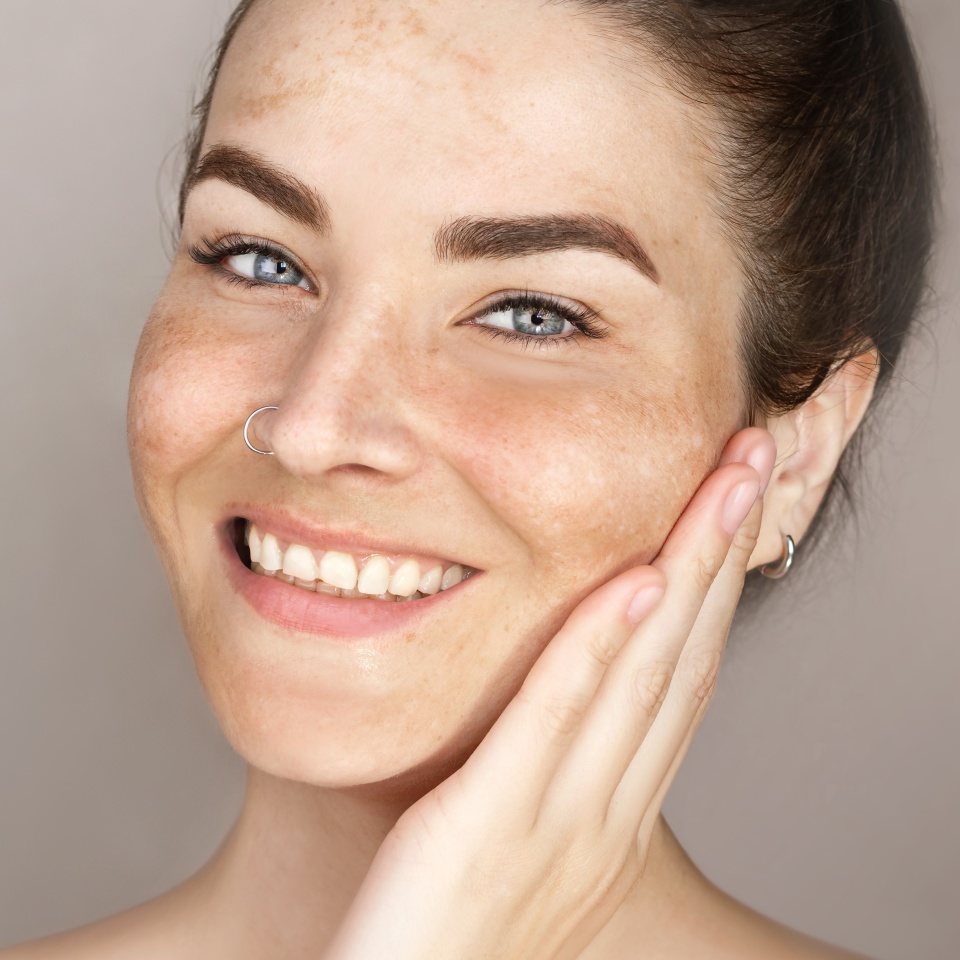Cold sores affect millions of Americans, with 50-80% of U.S. adults carrying the herpes simplex virus type 1 (HSV-1) that causes these painful oral lesions. While about 90% of adults have been exposed to the virus by age 50, not everyone develops visible symptoms. Dr. Kristine Zitelli provides comprehensive cold sore treatment and herpes simplex management for patients throughout Cincinnati, helping minimize outbreak frequency, duration, and discomfort through evidence-based therapies and preventive strategies.
One of the best dermatologists! After visiting numerous dermatologists over the years, I can confidently say she is the best in the field. From the moment I stepped into her office, I felt valued and heard. Dr. Zitelli took the time to genuinely listen and provide thoughtful insights and personalized care. Her approach is warm, professional, and incredibly reassuring, making each visit a breeze. I left feeling not only more informed but also confident about my skin health. If you’re looking for a dermatologist who truly cares and excels in patient interaction, look no further! Highly recommend her!
Understanding Cold Sores and Oral Herpes
Cold sores, also known as fever blisters, are small, painful fluid-filled blisters that typically appear on or around the lips, though they can affect other areas of the face and mouth. These lesions result from herpes simplex virus type 1 (HSV-1) infection, a lifelong condition that alternates between dormant and active phases. Once infected, the virus remains in nerve cells permanently, occasionally reactivating to cause visible outbreaks.
The initial HSV-1 infection often occurs during childhood and may be asymptomatic or cause mild symptoms that go unrecognized. Complete healing of cold sore lesions typically requires seven to ten days and follows a predictable pattern from initial tingling sensations through blister formation, rupture, scabbing, and final healing without scarring.
Common Triggers for Cold Sore Outbreaks
Understanding outbreak triggers helps patients better manage their condition and potentially prevent recurrences:
Stress and Emotional Factors
Physical or psychological stress can weaken immune function and trigger viral reactivation
Sun Exposure and UV Light
Prolonged exposure to sunlight typically presents lesions at the vermillion border of lips after 3 to 5 days
Febrile Illness
Recurrent herpes labialis occurs three times more frequently in patients with febrile conditions compared to those without
Hormonal Changes
Menstruation, pregnancy, or other hormonal fluctuations can precipitate outbreaks in susceptible individuals
Immune System Compromise
Illness, certain medications, or medical conditions that affect immune function
Local Trauma
Dental procedures, aggressive tooth brushing, or lip injury may trigger localized reactivation
Dr. Zitelli’s Comprehensive Treatment Approach
Dr. Zitelli provides individualized cold sore management strategies tailored to each patient’s outbreak patterns, severity, and lifestyle factors. Her comprehensive approach addresses both acute treatment of active lesions and long-term prevention strategies to reduce outbreak frequency and severity.
“Early intervention is key to minimizing cold sore duration and discomfort. The most effective treatments work best when started at the first sign of tingling or burning, ideally within the first 24-48 hours,” explains Dr. Zitelli. “My goal is to help patients recognize their early warning signs and have effective treatment readily available.”


Advanced Treatment Options
Antiviral Medications
Dr. Zitelli prescribes appropriate antiviral therapies based on outbreak patterns and individual patient needs:
- Episodic Treatment: Short courses of oral antivirals like acyclovir, valacyclovir, or famciclovir for individual outbreaks
- Suppressive Therapy: Daily antiviral medication for patients with frequent or severe recurrences
- Topical Antivirals: Prescription creams and ointments for localized treatment when appropriate
- Combination Approaches: Strategic use of both systemic and topical treatments for optimal results
Supportive Care Measures
- Pain management with appropriate analgesics and topical numbing agents
- Wound care guidance to promote healing and prevent secondary bacterial infection
- Nutritional support recommendations to optimize immune function
- Lifestyle modifications to reduce stress and identify personal triggers
Prevention Strategies and Lifestyle Management
Effective cold sore prevention involves identifying and avoiding personal triggers while maintaining overall health:
When to Seek Professional Treatment
While many cold sores resolve without medical intervention, certain situations warrant professional evaluation:
- Outbreaks occurring more than six times per year
- Severe pain that interferes with eating, drinking, or daily activities
- Lesions lasting longer than two weeks or showing signs of secondary bacterial infection
- Eye involvement or lesions near the eyes requiring immediate attention
- Immunocompromised patients who may experience more severe or prolonged outbreaks
Preventing Transmission to Others
Dr. Zitelli educates patients about transmission prevention to protect family members and close contacts:
- Avoiding direct contact with active lesions through kissing or sharing personal items
- Using separate towels, utensils, and lip products during active outbreaks
- Practicing good hand hygiene, especially after touching affected areas
- Being aware that viral shedding can occur even without visible symptoms
Frequently Asked Questions About Cold Sore Treatment
When antiviral treatment begins within 24-48 hours of symptom onset, it can reduce healing time by 1-2 days and significantly decrease pain intensity throughout the outbreak.
Yes, early intervention with prescribed antiviral medications at the first sign of tingling or burning can sometimes prevent lesion development or significantly reduce outbreak severity.
Clinical guidelines often suggest considering daily suppressive antiviral therapy for patients experiencing 4 to 6 or more outbreaks annually, or fewer if episodes are severe or distressing.
Yes, viral shedding can occur asymptomatically, though transmission risk is highest during active outbreaks when lesions are present and particularly when blisters are weeping.
Absolutely. Stress weakens immune function, making viral reactivation more likely. Many patients notice outbreaks following periods of high stress, illness, or significant life changes.

Expert Cold Sore Management in Cincinnati
Dr. Kristine Zitelli’s expertise in managing herpes simplex infections helps patients throughout Cincinnati and nearby Montgomery achieve better control over their cold sore outbreaks. Her evidence-based approach combines the latest antiviral therapies with comprehensive lifestyle counseling to minimize outbreak frequency and severity while improving overall quality of life.
Through personalized treatment plans, patient education, and ongoing support, Dr. Zitelli empowers patients to take control of their oral herpes management and reduce the impact of cold sores on their daily lives.
Take Control of Your Cold Sores Today
Don’t let frequent or severe cold sores disrupt your life any longer. Contact Queen City Dermatology today to schedule your consultation with Dr. Zitelli and develop an effective management strategy tailored to your specific needs and outbreak patterns.